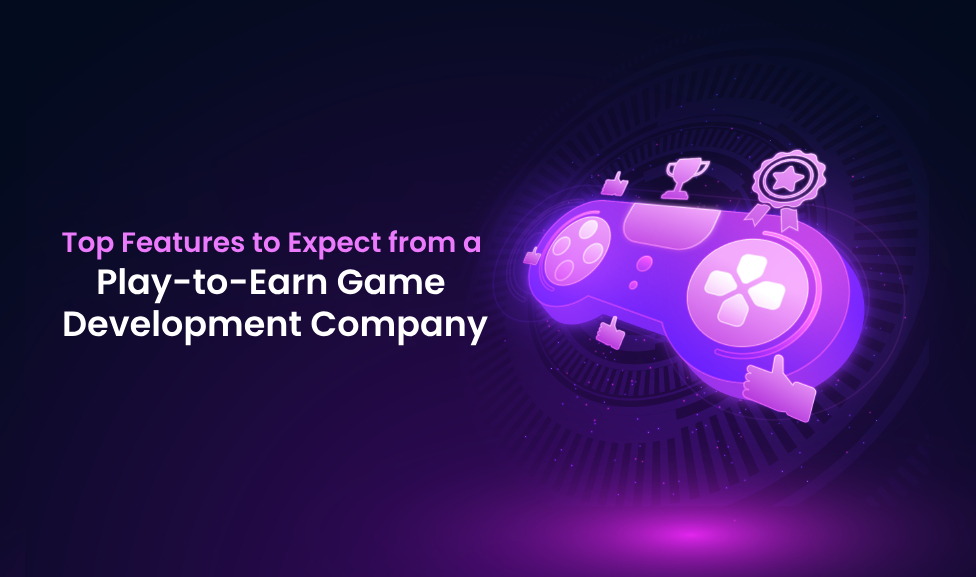The rise of blockchain technology and decentralized finance has paved the way for an exciting new frontier in the gaming industry: Play-to-Earn (P2E) games. These games provide entertainment and allow players to earn real value, such as cryptocurrency or digital assets. As the demand for P2E games grows, so does the need for specialized development companies that can deliver these unique gaming experiences. When selecting a Play-to-Earn game development company, it's essential to consider the key features they offer to ensure the success of your project.
1. Blockchain Integration Expertise
A top-tier Play-to-Earn game development company must have extensive experience with blockchain technology. The backbone of P2E games is the ability to create, manage, and transfer digital assets securely on a blockchain. Whether it’s integrating popular blockchains like Ethereum, Binance Smart Chain, or developing custom solutions, the company should have a strong track record in blockchain development. This expertise ensures that your game will have seamless and secure transactions, which is crucial for building trust among players.
2. Smart Contract Development
Smart contracts are self-executing agreements with the terms directly encoded into the program. In Play-to-Earn games, these contracts manage the distribution of rewards, ownership of in-game assets, and other key functions. A proficient Play-to-Earn game development company will have a team of expert smart contract developers who can efficiently write, test, and deploy these contracts. Their expertise ensures that the smart contracts are secure, transparent, and perform as intended, minimizing the risk of exploits or errors that could negatively impact the game or its players.
3. Tokenomics Design
Tokenomics refers to the economic model of a game's in-game currency or assets, including how they are distributed, earned, and spent. A competent Play-to-Earn game development company should offer comprehensive tokenomics design services. This includes creating a balanced and sustainable economy that incentivizes players to participate while ensuring long-term viability. Proper tokenomics can prevent inflation, maintain the value of in-game assets, and create a thriving player community.
4. Cross-Platform Compatibility
In today’s gaming world, cross-platform compatibility is essential. A reputable Play-to-Earn game development company will ensure that your game is accessible on multiple platforms, including PC, mobile, and web browsers. This broad accessibility increases your potential player base and ensures that players can engage with your game regardless of their preferred device. Additionally, the company should be adept at creating a consistent user experience across platforms, making it easy for players to switch between devices seamlessly.
5. Customizable NFT Integration
Non-fungible tokens (NFTs) have become a cornerstone of the Play-to-Earn model, allowing players to own unique digital assets that can be traded, sold, or used within the game. The best Play-to-Earn game development companies offer customizable NFT integration, enabling you to create unique assets that fit your game’s theme and mechanics. Whether it’s avatars, weapons, skins, or other in-game items, NFTs add a layer of value and ownership that enhances the player experience.
6. Scalable Game Architecture
As your Play-to-Earn game grows in popularity, it’s crucial that the underlying architecture can scale to meet the increasing demand. A proficient development company will design and build your game with scalability in mind, ensuring that it can handle a growing number of players and transactions without compromising performance. This includes implementing efficient database management, load balancing, and server optimization strategies.
7. Robust Security Measures
Security is paramount for any online game, but it's particularly vital for Play-to-Earn games, where real assets are involved. A leading Play-to-Earn game development company will enforce stringent security protocols to safeguard your game against hacks, cheats, and other malicious threats. This includes implementing secure coding standards, conducting regular security audits, and integrating advanced protective features such as two-factor authentication and encryption.
8. User-Friendly Interfaces
A great Play-to-Earn game development company understands that the success of a game is not just about the backend technology but also about the user experience. They will focus on creating intuitive and user-friendly interfaces that make it easy for players to navigate the game, manage their assets, and engage with the community. This includes designing clear and responsive menus, interactive tutorials, and accessible customer support.
9. Community Building Tools
The community is a vital aspect of any Play-to-Earn game, as it drives engagement, growth, and player retention. A leading Play-to-Earn game development company will provide tools and features that facilitate community building, such as in-game chat, forums, social media integration, and events. These tools help players connect, share experiences, and stay invested in the game.
10. Post-Launch Support and Updates
Finally, the Best Play-to-Earn game development companies offer ongoing post-launch support and updates. The gaming industry is dynamic, with new trends, technologies, and challenges emerging regularly. Your development partner should provide regular updates to keep your game relevant, fix bugs, and add new features. This commitment to long-term support is essential for maintaining a thriving game and a satisfied player base.
Conclusion
Choosing the Top Play-to-Earn game development company is crucial to the success of your project. By focusing on companies that offer these top features—blockchain expertise, smart contract development, tokenomics design, and more—you can ensure that your game not only meets but exceeds player expectations. As the Play-to-Earn model continues to gain traction, partnering with a company that understands the intricacies of this space will give you a competitive edge in the evolving gaming landscape.





Comments